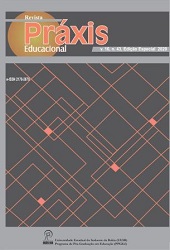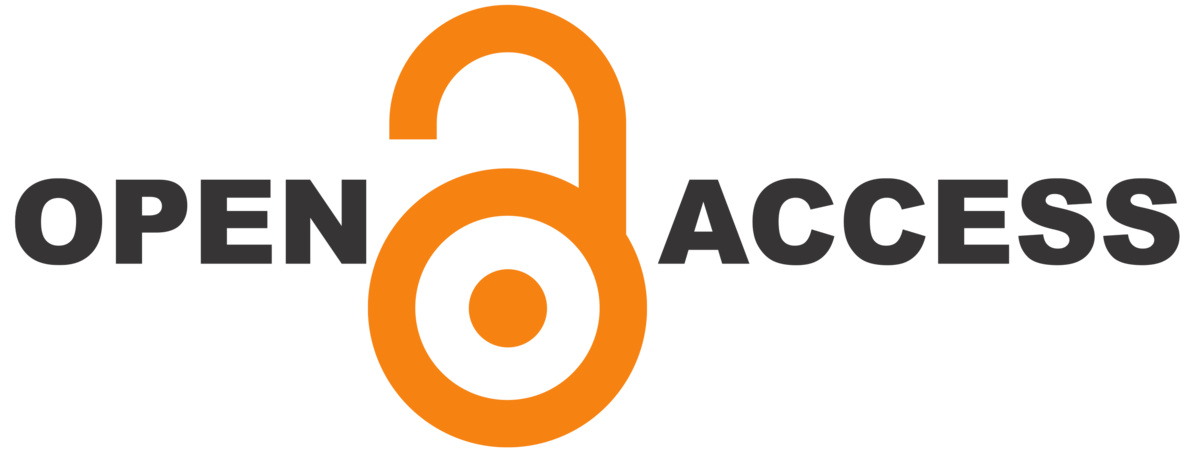PHENOMENOLOGY AND THE DEVELOPMENT OF AN INNOVATIVE STYLE FOR MANAGING A MODERN EDUCATIONAL LYCEUM
DOI:
https://doi.org/10.22481/rpe.v16i43.6841Keywords:
Educational lyceum , Innovative style of management , Model of innovative lyceum managementAbstract
The purpose of this article is to present the characteristics, content and logic of the development of an innovative managerial style among the directors of educational lyceums in modern Russia. The study reveals the specific features of this management style, which in general boils down to manager’s ability to promote the educational space of the Lyceum to the state of a dynamically developing system that responding to modern requirements for training specialists of innovative economies. As a key criterion for the development of an innovative managerial style, the authors considered the ability of a manager to make a personal contribution to instilling innovation. This criterion made it possible to identify the growth levels of the innovative style of managing the lyceum (reproductive, adaptive, locally-modeling, system-modeling, innovative-creative). The study developed a model for providing innovative managerial activities of the lyceum’s director, which is aimed at the formation of constructive leadership potential and a dynamic "Self-concept" of management. The logic of an innovative managerial style formation is revealed, which consists of three stages: the reflective stage, the identification stage, the stage of professional self-actualization. As a result of applying this logic in the research work, the managers of the experimental group developed better tolerance and flexibility of their position, increased creativity, the ability to withstand prolonged psycho-emotional stress, they better control themselves, the situation and communication, faster made the necessary decisions, showed self-confidence and ability exert managerial and pedagogical influence, ability to manage the social situation, bear responsibility.
Downloads
References
DERKACH, A.A. (2004). Akmeologic basis of development of professionalism. Moscow-Voronezh. 750 p.
DIMMOCK, C. (Ed.) (1993). School-based management and school effectiveness. Abingdon: Routledge.
DIESTERWEG, A. (1956). Selected pedagogical essays. Moscow: Uchpedgiz. 374 p.
DRUCKER, P. (2007). Innovation and Entrepreneurship: Practice and Principles. Butterworth-Heinemann.
GUILE, D. & GRIFFITHS, T. (2001). Learning through work experience. Journal of Education and Work, 14(1), 113–131.
FAYOL, H. (1949). General and Industrial Management. Translated by C. Storrs, Sir Isaac Pitman & Sons, London.
HOFFMAN, A. & SPANGEHL, S. (Eds). (2011). Innovation in Higher Education: Igniting the Spark for Success. American Council on Education, Rowman & Little field Publishers Inc., Lanham, MD.
IACOCCA, L. & WHITNEY, C. (2008). Where Have All the Leaders Gone? New York/ London/ Toronto/ Sydney: Scribner.
JERSILD, A.T. (1955). When teachers face themselves. Oxford, England: Bureau of Publications, Teachers Co.
KLIMOV, E.A. (1998). Introduction to the psychology of labor: Introduction to the psychology of labor: a textbook for high schools. Moscow: Culture and Sports: UNITI. 343p.
LAMBERT, L., WALKER, D., ZIMMERMAN, D. P., COOPER, J. E., LAMBERT, M. D., GARDNER, M. E., & SZABO, M. (2002). The constructivist leader (2nd ed.). New York: Teachers College, Columbia University.
LEWIN, K., LIPPIT, R. & WHITE, R.K. (1939). Patterns of aggressive behavior in experimentally created social climates. Journal of Social Psychology, 10, 271-301.
MASLOW, A. (1987). Motivation and Personality. N.Y: Addison-Wesley.
MESCON, M.H., ALBERT, M. & KHEDOURI, F. (1985). Management. New York: Harper and Row, Publishers.
PODYMOV, N.A. (1998). Psychological barriers in teaching. Moscow: Prometheus, 239 p.
PONOMAREV, Ya.A. (1976). Creativity psychology and pedagogy. Moscow: Pedagogy. 280 p.
ROGERS, C.R. (1961). On becoming a person. Boston, MA: Houghton Mifflin.
ROMANOVA, G. (2020). The Readiness of Leading and Teaching Staff to Develop Students’ Sociocultural Competence in the Inclusive Learning Environment. Pedagogika, 138(2), 226–243. https://doi.org/10.15823/p.2020.138.13
ROMANOVA, G. A., ANANISHNEV, V. M. & DARDA, E. S. (2020). Inclusive education: A path to equal rights. Opcion, 36 (Special Edition 26), 613-628.
RYZHKOVA, I.V. & SERGEEV, A.M. (2010). Specific Features of internationalization of higher education in the framework of the northern dimension. Baltic Region, 3, 24-37.
SALAZAR, P. (2013). High-impact leadership for high- impact school: The actions that matter most. New York, NY: Routledge.
SERDYUKOV, P. (2017). Innovation in education: what works, what doesn’t, and what to do about it? Journal of Research in Innovative Teaching & Learning, 10 (1), 4-33. https://doi.org/10.1108/JRIT-10-2016-0007
SHOSTROM, E.L. (1974). Manual for the Personal Orientation Inventory. San Diego, California: EdITS/Educational and Industrial Testing Service.
SHUTENKO, A.I., SHUTENKO, E.N., SERGEEV, A.M., RYZHKOVA, I.V., KORENEVA, A.V. & TEGALEVA, T.D. (2018). Socio-cultural Dominants of Higher School Innovation Mission. Espacios, 39(52), 34. https://www.revistaespacios.com/a18v39n52/18395234.html
SHUTENKO, E.N. (2015). Motivational and Conceptual Aspects of Student Self-fulfillment in University Education. Procedia – Social and Behavioral Sciences, 214(5), 325-331. http://www.sciencedirect.com/science/article/pii/S1877042815060073.
SHUTENKO, E.N. & SHUTENKO, A.I. (2015). Socio-Сultural Trends in the Development of the Higher School's Innovative Potential. Procedia – Social and Behavioral Sciences. 214(5), 332-337. http://www.sciencedirect.com/science/article/pii/S1877042815060103
SHUTENKO, A.I, SHUTENKO, E.N, SERGEEV, A.M., RYZHKOVA, I.V., TALYSHEVA, I.A. & TSAREVA, E.V. (2018). The use of modern ICT to provide students' self-realization in Russian higher school. Espacios, 39(43), 15. http://www.revistaespacios.com/a18v39n43/18394315.html
SLASTENIN, V.А. & PODYMOVA, L.S. (1997). Pedagogy: innovative activity. Moscow: Magister. 224 p.
STOGDILL, R. M. (1974). Handbook of leadership: A survey of the literature. New York: Free Press.
Downloads
Published
How to Cite
Issue
Section
License
Copyright (c) 2020 Práxis Educacional

This work is licensed under a Creative Commons Attribution-ShareAlike 4.0 International License.
Você é livre para:
Compartilhar - copia e redistribui o material em qualquer meio ou formato; Adapte - remixe, transforme e construa a partir do material para qualquer propósito, mesmo comercialmente. Esta licença é aceitável para Obras Culturais Livres. O licenciante não pode revogar essas liberdades, desde que você siga os termos da licença.
Sob os seguintes termos:
Atribuição - você deve dar o crédito apropriado, fornecer um link para a licença e indicar se alguma alteração foi feita. Você pode fazer isso de qualquer maneira razoável, mas não de uma forma que sugira que você ou seu uso seja aprovado pelo licenciante.
Não há restrições adicionais - Você não pode aplicar termos legais ou medidas tecnológicas que restrinjam legalmente outros para fazer qualquer uso permitido pela licença.












